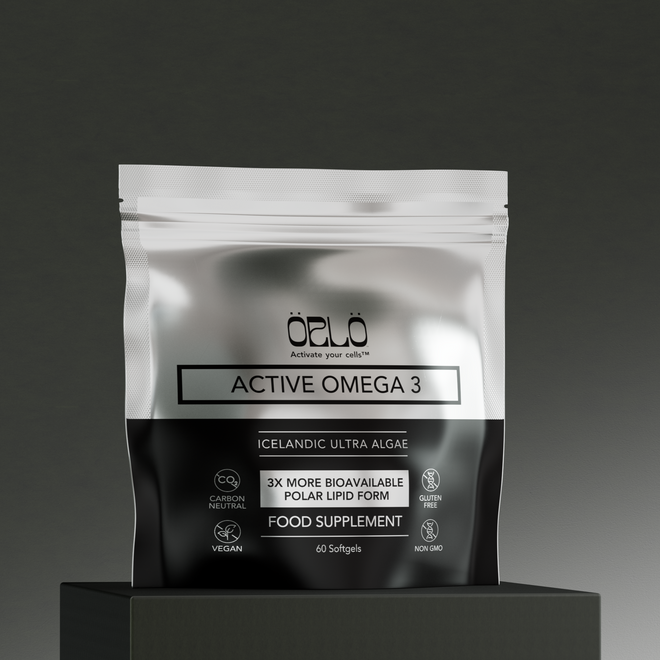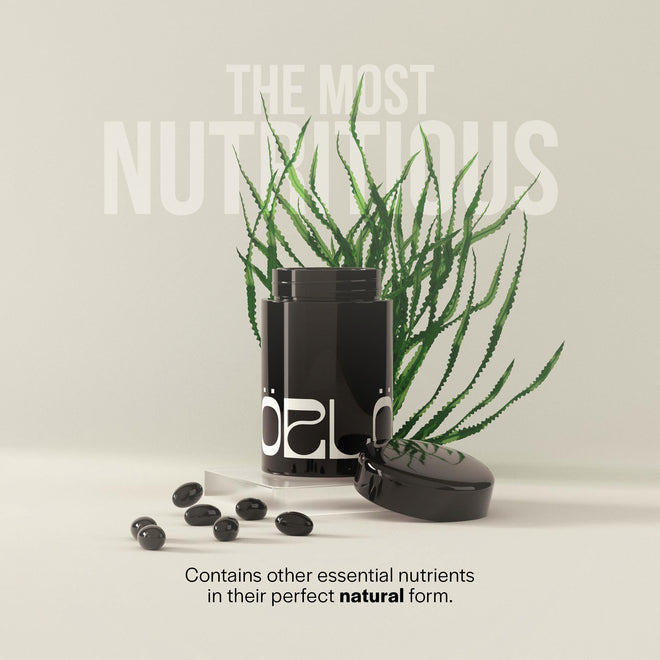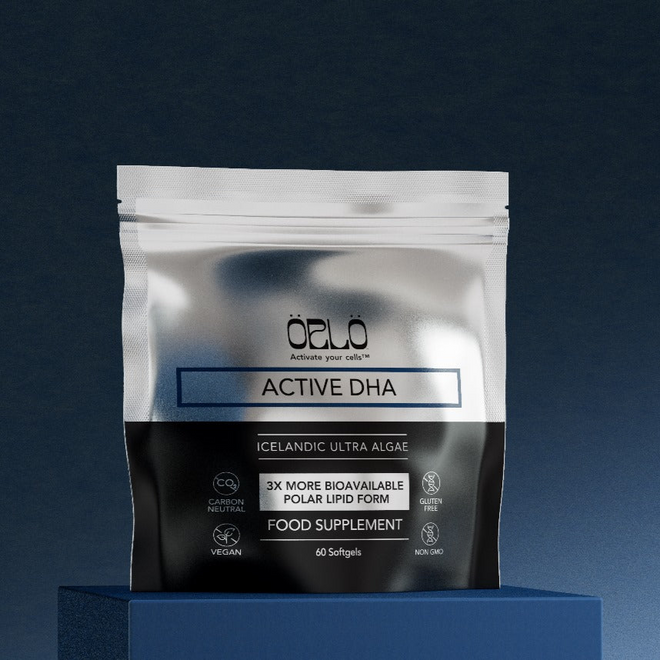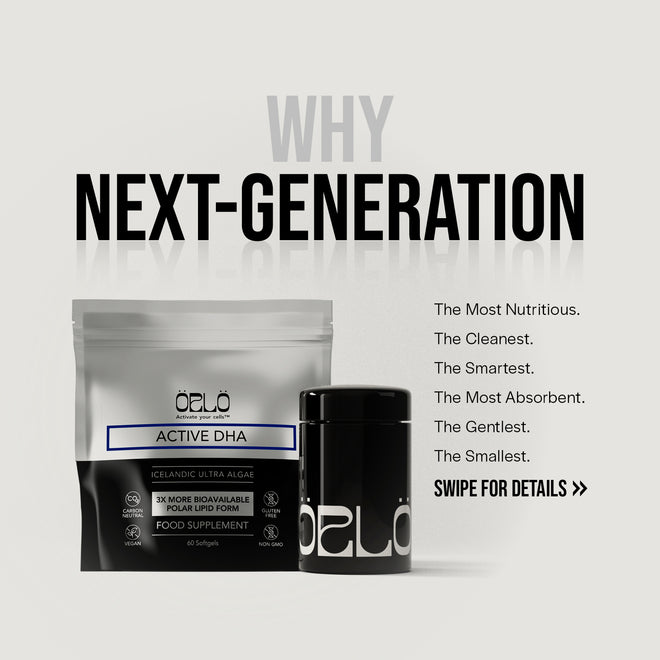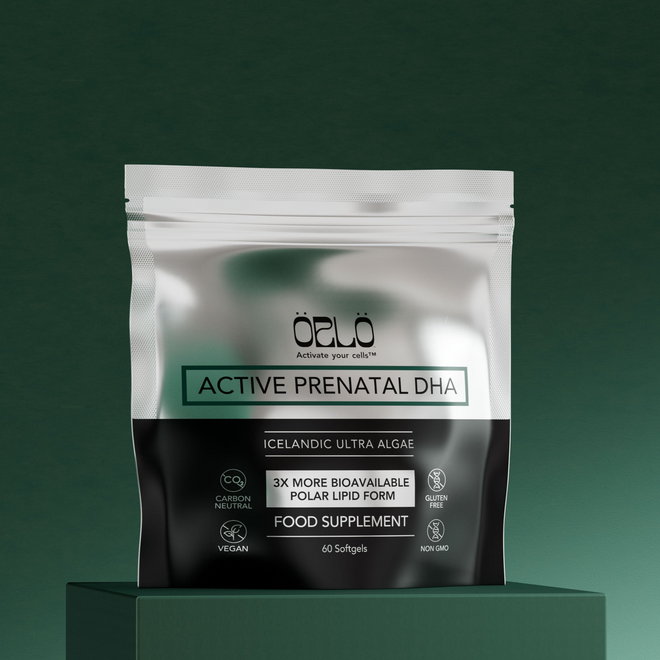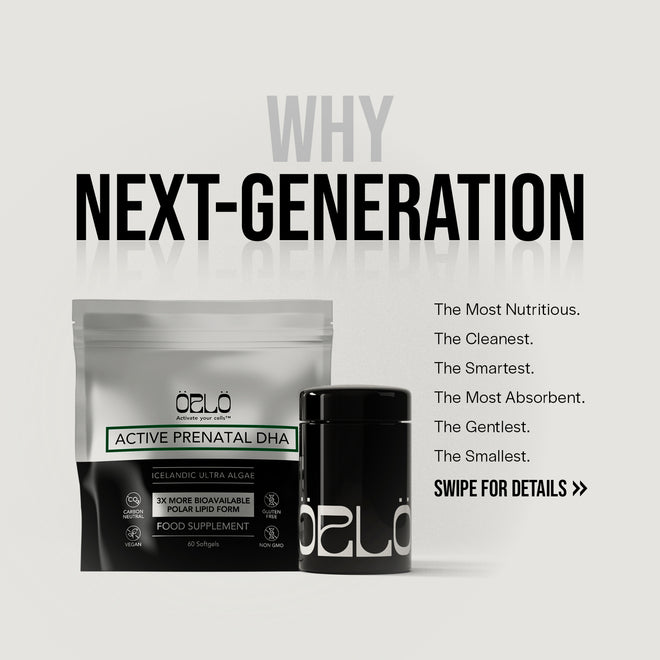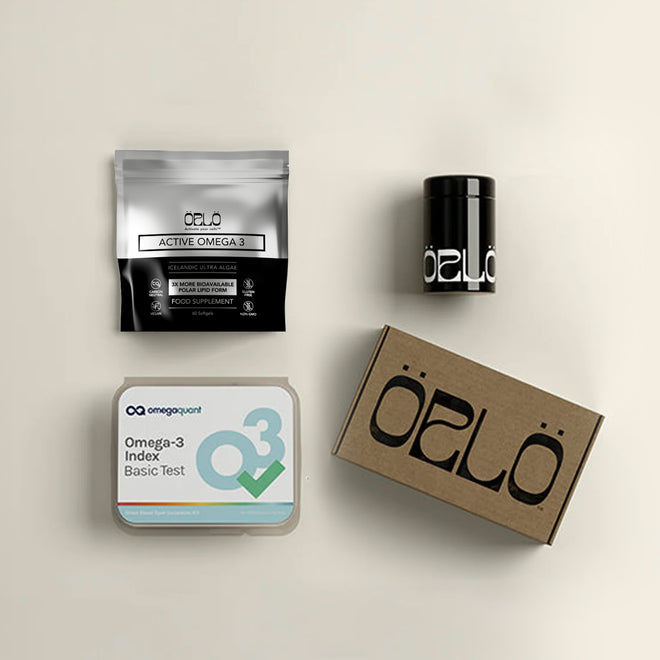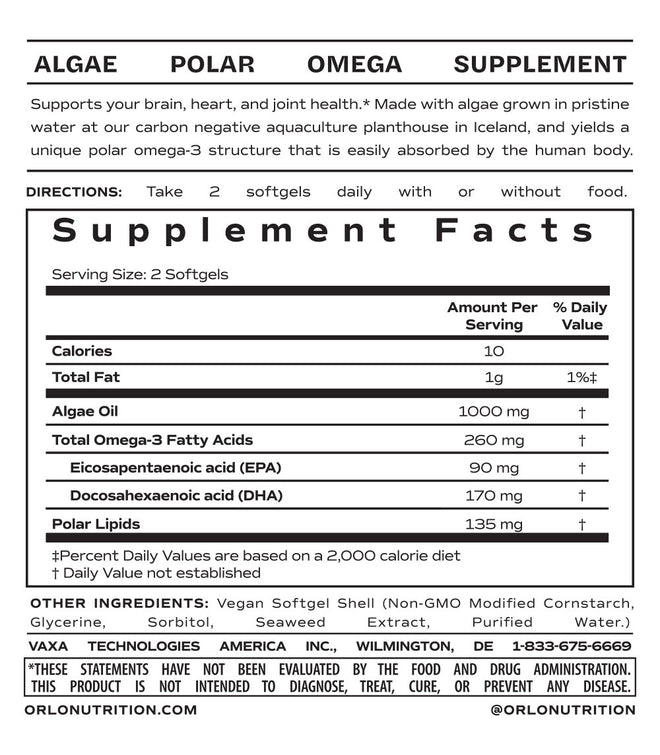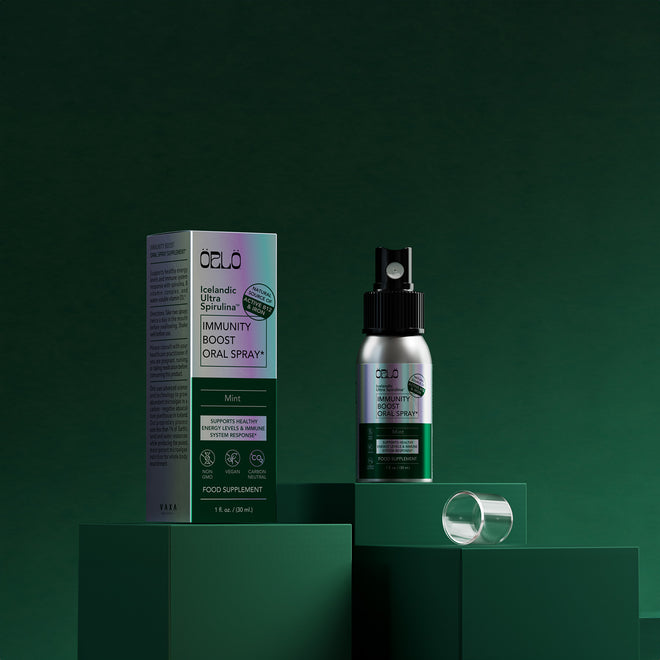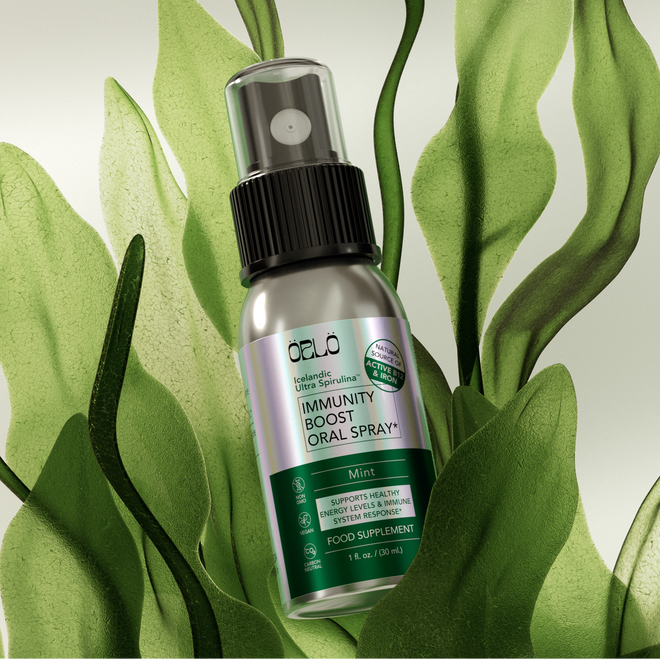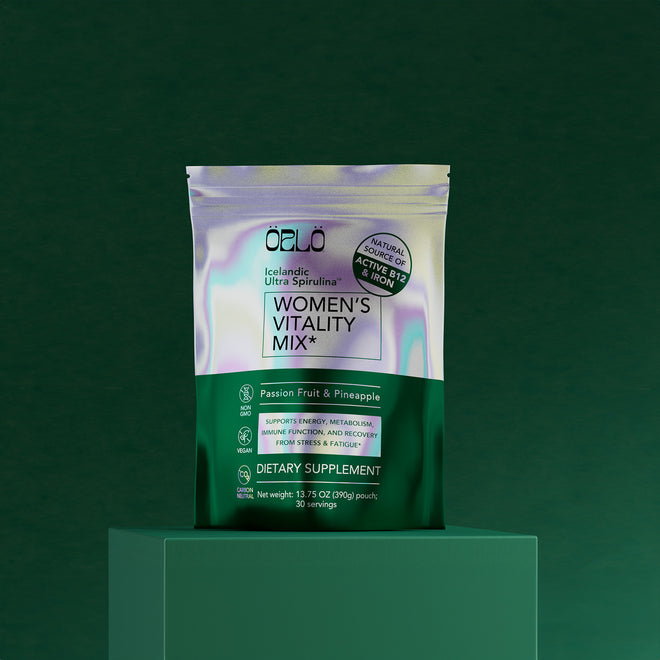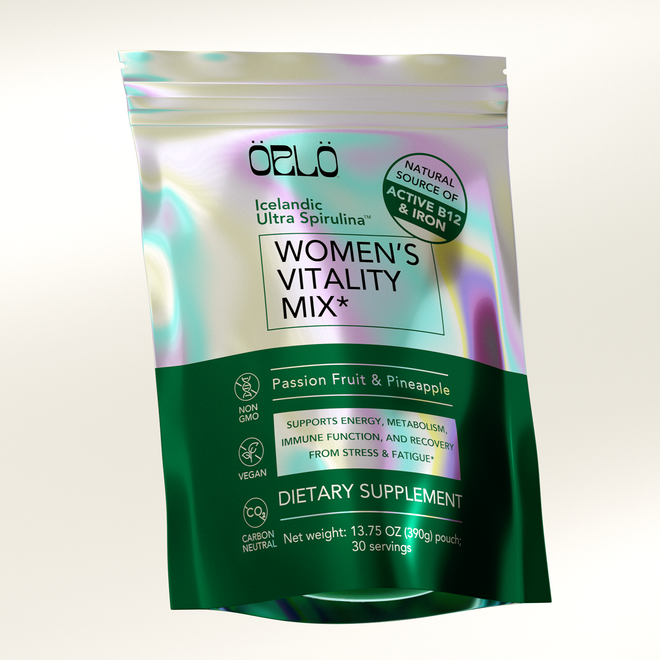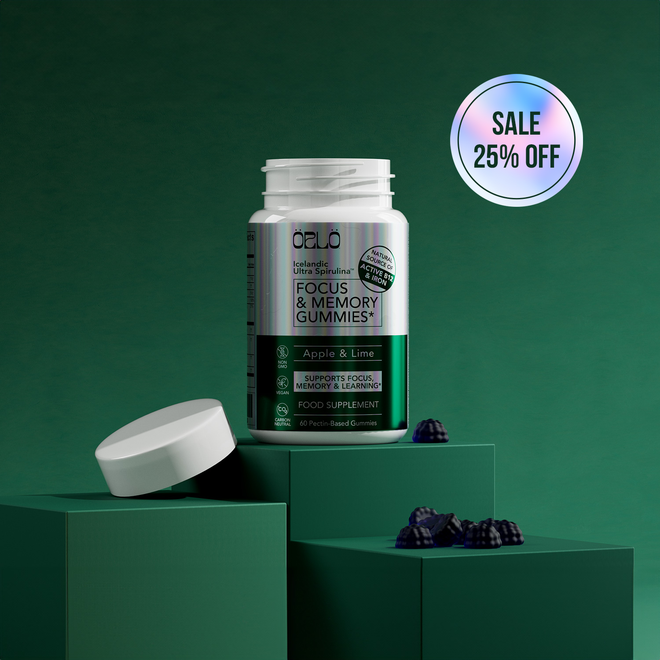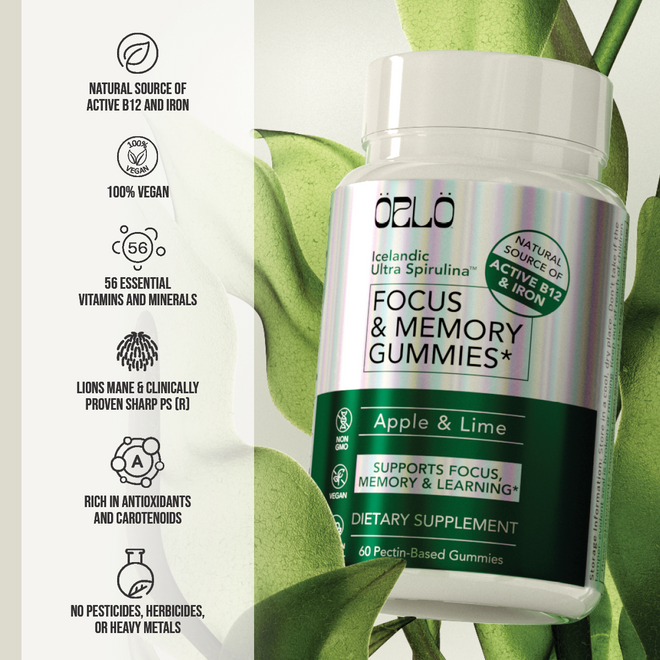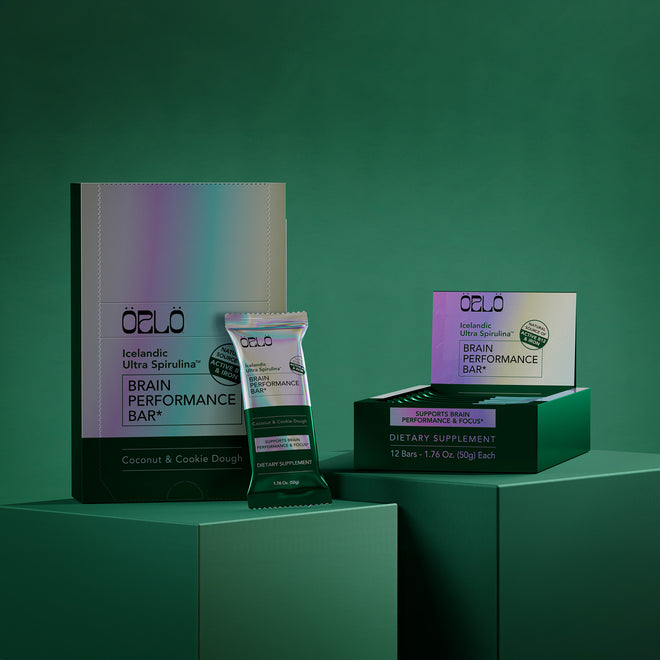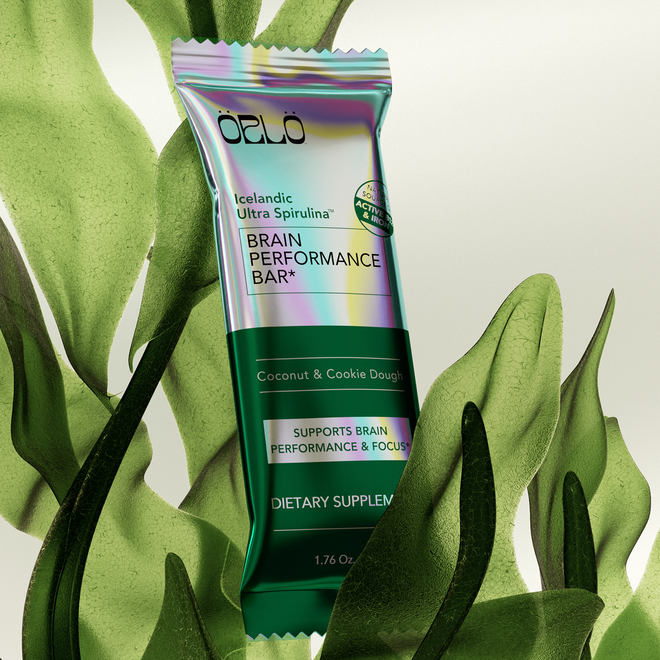25% Off - use code: HOLIDAYS
Changing The Narrative On Climate Change With Anne Therese Gennari
Watch the episode here
The impacts of climate change on different areas of society are interrelated, which is why people think the worst about the future. But we don’t have to simply accept and surrender to the possibility of a dying planet. We can actually change the narrative so we can start working together to co-create a better world! Join Corinna Bellizzi as she talks to entrepreneur, speaker, educator, author, environmental activist, and climate optimist, Anne Therese Gennari. Anne is the author of The Climate Optimist Handbook, a book that helps the narrative on climate change. The future is up to us, but change needs to start right now. We have so much to win if we only find the courage to act.
Key takeaways from this episode:
- The number of healthy products on the market right now.
- Why embracing your humanness is important, especially at this time.
- More info about Anne’s book, The Climate Optimist Handbook, and how it shifts the narrative on climate change.
- How you can affect climate change in your own little way.
- How you can be optimistic about your future.
Guest Social Links:
https://www.theclimateoptimist.com/
https://www.linkedin.com/in/anne-therese-gennari/
https://twitter.com/AnneTherese_G
https://www.instagram.com/annetheresegennari/
---
Changing The Narrative On Climate Change With Anne Therese Gennari
In this episode, we're going to dive deep into a discussion about optimism as it relates to food, nutrition, and the climate as we connect with my friend and the amazing climate optimist herself, Anne Therese Gennari. Anne Therese is an entrepreneur, environmental activist, and the Founder of The Climate Optimist. Her work has been featured on the BBC, HuffPost, Drawdown, The Weather Channel, and many more.
Anne Therese is focused on educating businesses and people on how they can act from courage and excitement, not fear. She is releasing her first book, The Climate Optimist Handbook, to help us navigate our journeys from anger to acceptance and optimism. Anne Therese, thank you so much for joining me. Welcome to the show.
Thank you for a lovely introduction. Thank you for having me. I'm so happy to be here.
I want to get started with somewhat the ethos of this show so people can connect the ideas we're talking about. What does nutrition without compromise mean to you if you were to define it for your audience?
Nutrition without compromise is just is. It's good food, simple, clean, natural, and something that I want to put in my body without having to compromise anything. That's what it is to me.
It's good, clean, healthy food, feeling secure around it and not worry about where it's coming from. Wouldn't it be nice if we didn't have to be label readers?
Even in where it is coming from and what it is doing to our earth and, ultimately, ourselves, which is not usually shown on a label. It's all these things.
These are problems that are not necessarily unique to our generation, which our grandparents didn't have to think about. They didn't have to do this, did they?
That's something I'm trying to remind my grandparents when they're like, "What are you doing all this work for? Come home to Sweden." I'm like, "The world has changed. It's not what it used to be back in your days." Things have happened pretty fast if you think about it. That's not a lot of generations ago. We need to be more aware. We need to be able to go to the store and buy things without having to be worried about the backstory or the ripple effects of it that we may not understand at the moment.
I've come back from Philadelphia, where I went to Natural Products Expo East. This is 1 of the 2 big shows in this whole foods and nutrition industry. You'll see supplement brands, a lot of foods, and a lot of food tech. It's amazing to see the innovations starting to come out of the periphery and into the mainstream, where there were several companies that were featuring seaweed as a component of their new version of a veggie burger instead of being beans and rice-based, things like green chickpeas. I'd never heard about green chickpeas, but apparently, it's before you dry them and then use them fresh as opposed to dried and then later soaked. What novel things are you seeing or are you, in particular, consuming during this vital stage in your own life?
This question has a lot of answers to it. I would also say kelp. That's an amazing use of a natural resource that's good in many ways, especially for climate change. I invested in a kelp burger company, and I haven't yet tried their burgers, which makes me feel so ashamed and not happy with myself now. That is something on the food scene that we need more of. Another crazy thing that might be on the market coming very soon is the fact that we can copy DNA from the milk of a cow and create actual milk without the use of a cow. I'm like, "That's extraordinary because some people want actual milk."

This is something that I planned to cover in my roundup from Expo East, which I'm still writing about because I came across this company that is doing exactly that. Because it has the same proteins present in dairy, they have to label it as a dairy product even though it doesn't contain anything related to the cow. It's actually from plants. I tasted the milk, even though I'm a little dairy sensitive.
I knew it wouldn't send me rushing to the bathroom just because I wanted to compare it to what I'd remembered when I consumed milk. I consumed milk most of my life up until I realized I was sensitive to it. I tasted it. It's a little thinner than what I was used to from full-fat cow milk. It's the same profile. It tasted virtually identical, which was incredible.
I did have the opportunity to try a version of a seaweed-incorporated burger. What I noticed was that it was a tad salty for my taste because I don't consume a lot of salt. I make most of my food fresh, and therefore it doesn't have the inborn sodium of 600 milligrams in a serving or anything like that. It would turn out that that sodium is coming from the seaweed, so it has a little bit more of a salty flavor. I'm sure there are ways to control that. We're relatively new in this space.
I'm hoping to feature AKUA in a future episode. I'm connected to their founder. I also met a couple of other companies at the show that was playing in this space. This is going to continue to create new innovations, new sustainable foods, and those that don't take much in the way of planetary resources to grow them. They sequester carbon. It's not like we're saying goodbye to swaths of land or cutting down forests in order to grow food. They could potentially replace some of the other vegetation we grow nowadays or just complement our diets. It's interesting.
In general, it's an exciting space to be in and be aware of because a lot of things are going to come in the next few years that are going to blow our minds like, "What?" and then we get used to it. That's something that we take for granted, but that's how the world works.
The few mind-blown moments I've had of late relate to some of the work we're doing at Orlo Nutrition. This is perhaps news to you, but we grow spirulina at our aquaculture plant house in Iceland. We've been analyzing that spirulina and comparing its stuff that has grown in open ponds because this is a closed system. It's controlled with artificial intelligence.
We dictate what is fed to the algae or the cyanobacteria in this case. We're able to only give it what it needs to grow and thrive and nothing of what it doesn't. There's no infiltration of other algae strains. This also means that algae have become super blue as opposed to the traditional blue-green algae that you would see. It produces a methylcobalamin form of vitamin B12, which the algae growing in open ponds doesn't do. That's the most bioavailable form of B12.
It was a mind-blown moment for us from a research perspective to also find that the essential amino acid compound, the entire panel grown by spirulina, is essentially comparable to the proteins you would find in a cow using 99% less land and water resources. Even though we're not proposing that this would one day end up being a burger replacement, you could foreseeably take a future protein from this spirulina and blend it in a protein shake.
It could replace your pea protein, hemp protein, or whatever other thing you're doing, and have a comparable amino acid profile to what people have traditionally sent you to B for, including that vitamin B12, which is so hard for vegetarians to get. I'm super excited about that. I know this is a development that will come 6 months, 1 year, or 2 years down the road because we're not quite to the spot where we can formulate foods yet with it, but it's on the horizon. It's exciting to see technology, nature, and the world's first plants start to play these roles in bringing this all together.
I'm trying to take it all in. It's cool.
As we talk about nutrition, what trimester are you in that you are revealing to the world that you're pregnant?
It's way too real. I'm a few weeks away now, so I am deep into my third trimester. It's catching up to me that I'm pregnant. The baby is about to be here soon.
When I first learned that you were pregnant, I was like, "Yes." Part of that came from this underlying perspective. I've seen many in the climate activism space pay a little bit of lip service to this idea that they're afraid to have the next generation of children because of the state of our climate and political systems. We feel like we're in this moment of flux where it's challenging to even have a meeting of the minds and families feeling like they can't talk to one another over some political craziness. You have doubled down and said yes to this next generation. It's much more than lip service to the idea of climate optimism, and you live and breathe this every day. I want to know from you what this whole concept means and why you decided to go ahead and take the effort of writing this notebook.
I see what you mean. I have experienced that myself. I wasn't sure if I wanted to have kids. My husband was always like, "You're going to have kids." I'm like, "You don't understand the world we live in. I am not sure I want that." It was a battle between two things. One is from a moral perspective, "How do I bring a child into a world that is so crazy and uncertain? What if my child gets to grow up in this scary climate dystopian future? I don't want to bring that to anyone, the very least my own child." That's one thing. It's the fear itself. The other one is here I am trying to minimize my footprint, and then I'm bringing the biggest footprint there is, which is another human being, into the world.
There's been a lot of shaming and finger-pointing in that regard. Some people love to claim that the only issue we're facing is a population issue. I do not agree with that at all because that's not the truth. If anything, if that's how we feel, we should empower women and their bodies and make sure that everyone is in control of their own decisions. That's where we should start if we think we have a population issue because that would be an obvious place to start, in my opinion. What happened to me was an ongoing journey that took place inside me spiritually. I started getting signs a little bit from the universe, also from my body and started to open up this idea that maybe I wanted to be a mother.
We should empower women and their bodies and make sure that everyone is in control of their own decisions.
At first, the thought terrified me, as I said. As I let it sit and grow with me, I realized I wanted to be a mother. If we give up on that intuitive, deeper sense of who we are and who we're supposed to be in this world, if we deny ourselves our own inner calling as a woman to be a mother, we're taking ourselves further away from our own humanness. We don't need to be less human. We need to be more human. We have to connect with that inner source and embody ourselves in a new way. When you deny yourself that calling, it's working against this purpose in a way, especially for climate change.
Every single human being is a beautiful participant in this journey towards a better world if we choose to act on it. It's not to say that every single one that comes here is going to come here, make trash, and leave a negative footprint. That is one of the biggest narratives we have to shift, which is the one that we keep telling ourselves that we are the issue and that if we only remove ourselves and make ourselves as small as possible, maybe the earth will survive. We can leave a positive footprint, which you described, with kelp and what you guys are doing.

It's when we shift that narrative to say, "We are here to leave a positive, beautiful footprint, and maybe do want to bring a child to the world because she can also help expand that footprint for us." A lot of things have gone on. Ever since the day I found out I was pregnant, my mind changed. My body has changed, not just on a very obvious physical level, but there have been some shifts inside me where I see myself in the world in a whole new way. I'm truly excited. It's weird to say, but I feel calmer and more optimistic now, knowing that I'm bringing a child into this crazy world than I felt in many years.
I have to say this from a mother who also dragged my feet a lot. I had my first child at 38. That tells you something. I had a second child at 41. I was officially called a geriatric mother by my OB at that point. That being said, the perspective I was able to bring to the whole process and my commitment to my own health led to a nurse at the hospital saying to me, "You may be my oldest mom, but you're also my healthiest."
That doesn't come from not paying attention to the things you put into your body. It comes from paying attention to that and listening to that inner voice or whatever that voice is when you're walking into the forest. I know you've described this on another show when I interviewed you, where it's almost like you're getting a download from the universe as you are in a meditative, calm state, spending time among the trees or on a hillside and just in nature.
If we can demonstrate this to our children, they can be as much a part of the solution as we are. To the point that I'm starting to see this now with my oldest son. He's starting to integrate all of the things I've taught him along the way about being mindful of waste, thinking about how he's treating the objects that he owns so that they can last, and understanding that we don't just go out and get the latest top plastic toy because it's available and that we don't do things like run to Tarjay and pick up a whole new wardrobe each season because he still has clothes that he can wear and that we can shop for at the used clothing store.
He's brought this into his psyche and talks about it with me. He's not even a big kid yet. If we're able to educate our kids and involve them in the choices we make as we think about the future we're building, they will be as much a part of it, if not more, from an earlier age than we might have engaged. It becomes the way things are. By procreating, we can be part of that solution that perhaps we might not otherwise be.
Thank you for calling me the most climate-optimistic act you've seen so far for me because I feel that way. It's manifesting my belief that we can get this right and trust the journey. Not to say I'm not worried or afraid. Some days, I'm terrified about where the world is headed. That's fine. As you said, we need to create a new generation that takes certain things for granted, and those are going to be the things that we don't take for granted. We got to break that generational amnesia that we are stuck in now, where we assume this is how it is. We grab a plastic fork and throw it out because that's normal, which shouldn't be normal when you think about it. They can grow up with a different normal, and we get to play a part in creating that new normal. That's what makes me excited.
You spoke to something else, those plastic utensils. My son had asked, "Mom, will you come back from this trip with a gift for Roland and me?" These kids want me to come back from a trip for something special. I went and found some new bamboo cutlery that was on exhibit at the show and got them each their own little kit so they could put them in their lunch boxes.
They were as excited about that as I might have been as a 7 or 8-year-old when my dad brought me a stuffed animal. It communicated to me that it doesn't necessarily matter what it is. It's just that there was an intention behind it that you brought something special. A toy doesn't have to be something that is stuffy that sits on your bed. That's not to say we don't have stuffies. We do.
One of the things I was hoping you could share relates to the content of your book because there's so much of what you do. You lead workshops. You help people discover how they can step into their own personal brand of activism in a way. What can they expect? What can these individuals who come and discover your book, The Climate Optimist Handbook, expect from it?
The easiest way to explain my book is a self-help book on climate change. I say that because it's written as a self-help book in a way. I want it to be inspirational and give a lot, not just for the individual to use as a tool to better the world. I want to give back to the individual. The core of my mission is to help people. I believe in helping people grow into the people they can be, where they will continuously help plant that positive seed on the earth.
It's a self-help book on climate change. It's broken up into five parts. The first part is about shifting the narrative. It's all about what I've learned, which is shifting the narrative on climate change, on the stories we tell ourselves, and how we see the world to give a little bit of a different perspective on what's possible if you turned this a little bit here and see what the backstory to this is and the other side of this issue that we're facing. That's the first part to set the mind and get people excited.
The second part is about change. How do we start embracing change? What does that look like? What we have to realize is that what we're facing now is change. That's scary because uncertainty always is. Our bodies are, from a neuroscience perspective, wired to retreat and hold back when there is change ahead. We have to learn how to unlearn that behavior and launch ourselves into the change. How do you build that resilience and adaptability muscle? It's a huge part of that.
Let's pause there for a second because you host a podcast called Hey Change. I want to put that out there as a resource because you have many interesting interviews that help people educate themselves on that process and dive deeper. I believe the last episodes you produced were in March of 2021. Perhaps it will come back soon.
I hope so. I have a backup list of people that I'm supposed to interview. I just had to focus on a few things, a book being one of them and growing the baby being another. I want to come back to the podcast because I love it. It's so fun, and it gives so much. How do we embrace change? How do we learn to flow in that change and get excited about it? That's a huge piece of my work and also a big part of the book.
The third part is optimism. What's the science behind optimism? Why is it important? How do we create optimism? I believe we can't just choose it because that's going to come back and bite us. We have to participate and, in doing so, create our own optimism. There's a piece on choosing empowerment. What does that look like? That's where we get to embark on that journey and start implementing change. What does it mean to be a leader in our own lives? What does it mean to be a leader in our communities and families?
We don't have to become the next Instagram sensation or Greta Thunberg, who's marching and having thousands of people join her. That's not the leader everyone has to be, but we can all be a leader in our own lives and regain that agency, which in so many of us are lacking now, which is why we're so anxious. We feel like we don't have control. How do we become that leader for ourselves and others? There's the whole piece of climate optimism. What are the reasons for being optimistic about the transition, all these amazing new technologies, and the future? What does it look like to live in that excitement and curiosity?
Be a leader in your own life so you can regain that agency, which so many people lack right now.
The book is about shifting the narrative on climate change, but to do so in a way from an empowering perspective where the reader gets to go on this journey where hopefully, they will finish the book feeling like, "Not only do I deserve to feel well and happy now in the midst of climate change and being aware of all this, but by seeking to be the healthiest, happiest, most balanced version on myself, I will also leave the most positive footprint on the world around me."
I forgot one entire piece, which is awareness. The whole awareness piece is how to land in awareness and accept reality, but from that, heal ourselves so we can heal the world and start growing emotional resilience. I know there was a lot, but it's a book with many parts. I hope that people will finish it feeling grounded but also empowered.
That's the important piece here. We all need to be empowered to engage. I love your point that being a climate activist doesn't have to look any one way. It could be doing something as simple as making sure that you routinely email your congresspeople about a specific issue you're upset about or something like my friend who has decided to spearhead Fridays For Future.
Every Friday, he pickets in front of the city hall in Palo Alto. Every Monday, he goes to the city council meetings and uses up 2 to 3 minutes of time talking about why climate change is an issue and making sure that his voice is heard, recording it, sharing it on social media, and working to make the community more aware and amplify the voices that sometimes fall by the wayside. If each of us can take a little piece we're passionate about and march for change, we're doing good work. We can remain more optimistic because we're engaged.
In my mind, it's this self-fulfilling positive cycle where we're thankful for the engagement for the community we build. We build stronger connections with people that we're inspired by. That inspiration leads us and continues to feed that optimistic engagement in not only your life but in your passionate pursuits. I love the whole concept. I love your work. I commend you for staying with it. It is hard to do that in the midst of pregnancy and getting phone calls from BMW.
I had one of those crazy summers. I'm like, "Why is everything happening now?" I trust and embrace that. Before we move on, it's important to recognize that there are steps to all this. For someone who's reading, it's like, "I don't want to go to my city council every Monday," you don't have to do that. That is amazing that he does that. I'm cheering him on from here in New York. It can start by, and this can be intimidating to some people, having a conversation about climate change with your family. That can be a big place to start for some. We need that.
I'm not going to butcher and throw numbers out there, but there's something where around 70% to 80% of Americans are concerned about climate change, but when they asked what they think their peers think, only 30% something believes that other people care about it. Don't get too hung up in the numbers, but a lot more people care about climate change than what they think their peers do.
This tells us we should talk about it because we all want the same thing. We are all more concerned than we might think that the neighbors are. There are so many barriers and mental blockages there where we feel like already there, "That's too much. I don't want to talk about it because I'm acknowledging that climate change is real." That's a great place to start.
To also emphasize what you said about optimism, that's how you create optimism. You feel good about yourself. You feel like, "I'm making an impact," but your body will also start to reward you because it produces happiness hormones, which I talk a lot about in book two. Break that idea like, "I should show up for activism because I should do this. It's my responsibility to save the world for our kids and future generations." Yes, if you want to tell yourself that, but it's not going to work in the long run. You're going to get tired and overwhelmed. Instead, say, "We live in a world that isn't working. We all created it. I was born into this world too, so it's not technically my fault because it was already set up for me to continue to ruin the earth."
Take off that responsibility piece and instead say, "I live now, and we have this incredible opportunity to create a whole different world. I am to be here for that. It may not be my responsibility, but I have an opportunity here to participate in this. How exciting can that be?" Tell yourself a different story and start digging in where it feels good for you to start. Maybe you want to go to your city council because you were there. You're amped up and excited. If that's too much for you, start somewhere else and continue to build up.
I had the pleasure of meeting in person a couple of people I featured on this show in an earlier episode, the cofounders of Lotus Foods, who are in the space of rice and have championed More Crop Per Drop with rice cultivation. We were talking about the issues of food insecurity in the present climate, namely also, the reality that we're confronted with in California. In California, we grow most of the rice grown in the United States. We have water issues here now because we don't expect to get the same allocation of water resources to our farmlands.
The whole technology created to build More Crop Per Drop may end up being integrated much more rapidly from this whole regenerative agriculture perspective because we're having these water restriction things coming down the pike quickly. Even though harvest this 2022 is likely to be affected and affected negatively, it is going to inspire the change that we need to see long-term for a healthier food system on a local basis. At the same time, we have to exercise some chops, look at global food systems, collaborate around the globe, and open our connections to ultimately understand that we are one people on one planet, and we're all in this together.
It might be a crazy race for space, but we have the ability to move forward with optimism and create solutions that are going to create the future that you envision, which you once described for me. Before we wrap, I'm going to have to ask you to do that too because that part of remaining optimistic, whether it be about our food systems, nutrition, families, futures, or climate as a whole, we have to be able to envision what that beautiful future can look like. I want to give you the floor.
You're so right. We have to envision that future. I invite everyone who's reading to do this on their own. Sit down and meditate or whatever. Go for a walk and see what comes to you. If you were to remove those barriers to what's possible, what could the future look like? How could the future feel like? What are some of the sensations that you feel in this future? It's important that we visit that future quite often. I always talk about cities, but I live in New York City, so it's what my reality is and where we need to see the biggest changes and where a lot of the biggest changes are possible because there is a system in place. We can create massive changes rapidly for that reason.
A future I'm envisioning is I'm walking down the street. The air is fresh because there are trees all around me. There are birds singing from the treetops. If I look below, there’s greenery, little gardens, there are benches to sit on, and almost at least 50% of the streets in New York have been converted from car streets to walking streets or biking streets. All the city bikers now have a safe place to bike around, which is not the side of New York City's busy streets. It's not quiet at all. It's a very lively city. There are people talking. There are coffee shops with a European style where there's outside seating on the patio and the street, and people are conversing, having fun, and laughing. There's music and street musicians and a lot of cultures because that's what New York is known for.
All that is still here, if not amplified, but you can hear it too because all the noise is gone. All the drilling, cars, and things we took for granted in our old days are gone because we don't need them anymore. Our transportation is very quiet, electrically driven trains. We still have cars, but they have a completely different purpose than the cars we know now. We don't want cars in the same regard because back in the day, we used to spend away so much time in our cars, getting frustrated over not finding parking, and getting home late for dinner. It's all these things that drove us crazy, and thank God we figured out a new system, so we don't need that anymore.
We also have more time for that reason to be with our kids and friends and catch up with colleagues. The human mind and humankind are on a different level. There's still pain, insecurities, and injustices because it's just the world, but it's different these days because we have reached a new level of nutrition in our bodies, which, thank God, we figure that one out. We have more energy again and more space to think, reflect, and recoup, which turned out to be an essential piece in our evolution and survival as a species. I can't wait to be there walking around the streets with my daughter, who will be whatever age she will be at that point. It's a future that I look forward to.
The human mind and humankind are on very different levels.
I can almost hear the birds singing. Thank you so much for that vision. It's important that we all envision our own personal best future, whether that be in a city like New York or one like Paris, where they might be closer to that reality nowadays, given their commitments, or often a countryside farm. It doesn't have to be any which way, much like what your activistic streak might be. You can choose almost anything. It's the future that you envision. It's my belief that by doing so, you get closer to that reality. Even just spending a little time reflecting and thinking about what you want your future to be, you'll lead a happier and healthier life.
You feel your optimism too.
Do you have any other closing words you'd like to leave with?
Allow yourself to get excited and recognize the incredible opportunity you have now to participate in this shift because you don't want to miss out. We can both tell you that you don't want to miss out. It's a truly rewarding way of life. Dive right in there, get excited, and let's create a better world.
Thank you.
---
If you have questions about what we covered in this episode or just want to reach out and share your own perspective, please reach out on social channels @OrloNutrition or send me a note directly to Hello@OrloNutrition.com. As we close this show, I want to remind you that all our readers qualify for an extra 10% off at OrloNutrition.com. If you're interested in that spirulina that we mentioned earlier, an omega-3, or even the prenatal DHA, like the one that Anne Therese is using, you can find them on that site. The show discount is simply NWC 10 for an extra 10% off at checkout. As we close this show, I hope you'll raise a cup of your favorite beverage with me, minus tea, as I say my closing words, here's to your health.
Important Links
- The Climate Optimist
- The Climate Optimist Handbook
- AKUA
- Hey Change
- Fridays For Future
- Lotus Foods
- @OrloNutrition – Instagram
- Hello@OrloNutrition.com
About Anne Therese Gennari
 Anne Therese is an entrepreneur, speaker, educator, author, and environmental activist who helps shift the narrative around climate change so that we can act from courage and excitement, not fear. A frequent contributor to media, her work as "The Climate Optimist" has been featured in HuffPost, BBC, Global Goals Forum, The Weather Channel, Project Drawdown and more. This fall, she releases her first book: The Climate Optimist Handbook, which aims to help us navigate the murky waters of fear, and anger as we gain agency and optimism on our quest to build a better future.
Anne Therese is an entrepreneur, speaker, educator, author, and environmental activist who helps shift the narrative around climate change so that we can act from courage and excitement, not fear. A frequent contributor to media, her work as "The Climate Optimist" has been featured in HuffPost, BBC, Global Goals Forum, The Weather Channel, Project Drawdown and more. This fall, she releases her first book: The Climate Optimist Handbook, which aims to help us navigate the murky waters of fear, and anger as we gain agency and optimism on our quest to build a better future.

